Kidney failure may occur from an acute situation that injures the kidneys or from chronic diseases that gradually cause the kidneys to stop functioning.
In acute renal failure, kidney function is lost rapidly and can occur from a variety of insults to the body. Since most people have two kidneys, both kidneys must be damaged for complete kidney failure to occur. Fortunately, if only one kidney fails or is diseased it can be removed, and the remaining kidney may continue to have normal kidney/renal function.
Amyloid proteins
Normal functioning kidneys filter amyloid (a protein) from the bloodstream. In kidney failure amyloid proteins in the blood rise and can separate and clump together forming amyloid deposits into a variety of tissue and organs, including joints and tendons. This can result in symptoms of the following:
- Joint stiffness.
- Pain.
- Swelling.
The list of causes of kidney failure is often categorized based on where the injury has occurred.
Prerenal causes are due to decreased blood supply to the kidney, for example:
- Hypovolemia (low blood volume) due to blood loss.
- Dehydration from loss of body fluid (for example, vomiting, diarrhea, sweating, fever etc).
- Medication, for example, allopathic diuretics may cause excessive water loss.
- Abnormal blood flow to and from the kidney due to obstruction of the renal artery or vein.
Causes of acute kidney failure
Renal causes of acute kidney failure (damage directly to the kidney itself) include:
Sepsis: The body’s immune system is overwhelmed by infection and causes inflammation and shutdown of the kidneys. This usually does not occur with simple urinary tract infections.
Rhabdomyolysis: In rhabdomyolysis, there is significant muscle breakdown in the body, and the damaged muscle fibers clog the filtering system of the kidneys. Massive muscle injury may occur because of trauma, crush injuries, and burns. Some medications used to treat high cholesterol may cause rhabdomyolysis.
Acute glomerulonephritis or inflammation of the glomeruli, the filtering system of the kidneys. Many diseases can cause this inflammation including:
- Systemic lupus erythematosus
- Wegener’s granulomatosis (vasculitis or Granulomatosis).
- Goodpasture syndrome.
Hemolytic uremic syndrome: Hemolytic uremic syndrome (hee-mah-lit-ick yer-ee-mik sin-drohm) is a medical condition that blocks the small blood vessels in your kidneys. The blockage destroys our red blood cells (hemolytic anemia) and reduces the number of platelets (thrombocytopenia), which are clotting cells. Hemolytic uremic syndrome (HUS) most commonly affects our kidneys.
Post-renal kidney failure causes
Post-renal causes of kidney failure are due to factors that affect the outflow of the urine: 
- Obstruction of the bladder or the ureters can cause back pressure because the kidneys continue to produce urine, but the obstruction acts like a dam, and urine backs up into the kidneys. When the pressure increases high enough, the kidneys are damaged and shut down.
- Prostatic hypertrophy or prostate cancer may block the urethra and prevents the bladder from emptying.
- Tumors in the abdomen that surround and obstruct the ureters.
- Kidney stones. Usually, kidney stones affect only one kidney and do not cause kidney failure. However, if there is only one kidney present, a kidney stone may cause the remaining kidney to fail.
Causes of chronic kidney failure
Chronic renal failure develops over months and years. The most common causes of chronic renal failure are related to the following:
- Poorly controlled diabetes.
- Poorly controlled high blood pressure.
- Chronic glomerulonephritis
Less common causes of chronic renal failure include:
- Polycystic kidney disease
- Reflux nephropathy (damage caused by urine backflow from the bladder into the ureters and kidney)
- Nephrotic syndrome
- Alport’s disease
- Interstitial nephritis
- Kidney stones
- Prostate disease
Signs and symptoms of kidney failure
Initially, kidney failure may be asymptomatic (not produced any symptoms). As kidney function decreases, the symptoms are related to the inability to regulate water and electrolyte balances, clear waste products from the body, and promote red blood cell production.
If unrecognized or untreated, the following symptoms of kidney failure may develop into life-threatening circumstances:
- Lethargy.
- Weakness/Fatigue.
- Shortness of breath.
- Generalized swelling (edema).
- Generalized weakness due to anemia.
- Loss of appetite.
- Congestive heart failure.
- Metabolic acidosis.
- High blood potassium(hyperkalemia).
- Fatal heart rhythm disturbances (arrhythmias) including ventricular tachycardia and ventricular fibrillation.
- Rising urea levels in the blood (uremia) may lead to brain encephalopathy, pericarditis (inflammation of the heart lining), or hypocalcemia (low calcium blood levels).
kidney failure pain
Kidney failure in itself does not cause pain. However, the consequences of kidney failure may cause pain and discomfort in different parts of the body.
Underlying chronic disease pain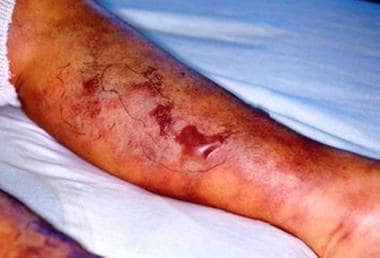
Pain is often a consequence of the underlying chronic disease that led to kidney failure, for example:
- Patients with poorly controlled diabetes may develop diabetic neuropathy pain.
- Patients who have peripheral vascular disease also may have pain in their extremities and may develop claudication (leg pain that occurs with walking).
Diagnosis
Often, a patient is seen for another medical condition and the diagnosis of kidney failure is a consequence of the patient’s disease or injury. In patients with chronic kidney disease due to diabetes, high blood pressure, or another related medical condition his/her doctor most likely monitors kidney function as part of routine medical checkup.
Diagnosis of kidney failure can be confirmed by blood tests such as:
- BUN.
- Creatinine.
- GFR; which measures the buildup of waste products in the blood.
Urine tests may be ordered to measure the amount of protein, detect the presence of abnormal cells, or measure the concentration of electrolytes.
Other tests are used to diagnose the type of kidney failure such as:
-
- Abdominal ultrasound.
- Kidney biopsy.
Allopathic treatment for kidney failure
Acute renal failure:
Some medications are toxic to the kidney including:
- Nonsteroidal anti-inflammatory drugs (NSAIDs) like ibuprofen, diclofenac, naproxen etc.
- Antibiotics like aminoglycosides gentamicin, tobramycin.
- Lithium.
- Iodine-containing medications such as those injected for radiology dye studies.
Prevention is always the goal of kidney failure.
- Chronic diseases such as hypertension (high blood pressure) and diabetes are devastating because of the damage that they can do to kidneys and other organs.
- Lifelong diligence is important in keeping blood sugar and blood pressure within normal limits.
- Specific treatments depend upon the underlying diseases.
Once kidney failure is present, the allopathic goal is to prevent further deterioration of renal function. If ignored, the kidneys will progress to complete failure, but if underlying illnesses are addressed and treated aggressively, kidney function can be preserved, though not always improved.
Complete kidney failure allopathic treatment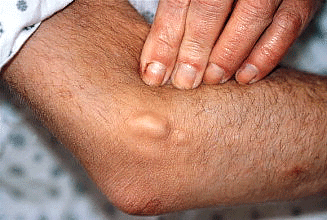
Different classes of medications may be used to help control some of the issues associated with kidney failure including:
- Phosphorus-lowering medications, for example, calcium carbonate, calcitriol, and sevelamer.
- Red blood cell production stimulation, for example, erythropoietin, darbepoetin.
- Red blood cell production (iron supplements) {I strictly not recommend any supplements, said Dr Qaisar Ahmed}.
- Blood pressure medications.
Once the kidneys fail completely, the allopathic treatment options are limited to dialysis or kidney replacement/transplantation.
Diet for kidney failure with allopathic treatment
Diet is an important consideration for those with impaired kidney function.
In this state of impaired kidney function, the kidneys cannot easily remove excess water, salt, or potassium from the blood, so foods high in potassium salt substitutes may need to be consumed in limited quantities. Examples of potassium-rich foods include:
- Bananas
- Apricots
- Cantaloupe
- Sweet potatoes
- Yogurt
- Spinach
- Avocados
Phosphorus is a forgotten chemical that is associated with calcium metabolism and may be elevated in the body in kidney failure. Too much phosphorus can leach calcium from the bones and cause osteoporosis and fractures. Examples of foods and beverages high in phosphorus include:
- Milk
- Cheese
- Nuts
- Carbonated drinks
- Coffee
- Chocolate
- Yogurt
- Organ meats
- Sardines
- Oysters
- Baked beans
- Black beans
- Lentils
- Kidney beans
- Soybeans
- Bran cereals
- Caramels
- Whole grain products etc.
What are dialysis and hemodialysis
Dialysis cleanses the body of waste products by body by use of filter systems. There are two types of dialysis:
- Hemodialysis
- Peritoneal dialysis
Hemodialysis
Hemodialysis uses a machine filter called a dialyzer or artificial kidney to remove excess water and salt, balance the other electrolytes in the body, and remove waste products of metabolism.
Blood is removed from the body and flows through tubing into the machine, where it passes next to a filter membrane. A specialized chemical solution (dialysate) flows on the other side of the membrane. The dialysate is formulated to draw impurities from the blood through the filter membrane. Blood and dialysate are never touched in the artificial kidney machine.
For this type of dialysis, access to the blood vessels needs to be surgically created so that large amounts of blood can flow into the machine and back to the body. Surgeons can build a fistula, a connection between a large artery and vein in the body, usually in the arm, that allows a large amount of blood to flow into the vein. This makes the vein swell or dilate, and its walls become thicker so that it can tolerate repeated needle sticks to attach tubing from the body to the machine. Since it takes many weeks or months for a fistula to mature enough to be used, significant planning is required if hemodialysis is to be considered as an option.
If kidney failure happens acutely and there is no time to build a fistula, special catheters may be inserted into the larger blood vessels of the arm, leg, or chest. These catheters may be left in place for weeks. In some diseases, the need for dialysis will be temporary, but if the expectation is that dialysis will continue for a prolonged period, these catheters act as a bridge until a fistula can be planned, placed, and matured.
Dialysis treatments normally occur three times a week and last a few hours at a time.
Peritoneal dialysis
Peritoneal dialysis uses the lining of the abdominal cavity as the dialysis filter to rid the body of waste and to balance electrolyte levels. A catheter is placed in the abdominal cavity through the abdominal wall by a surgeon, and it is expected to remain in place for the long term. The dialysis solution is then dripped in through the catheter and left in the abdominal cavity for a few hours after which, it is drained out.
During that time, waste products leech from the blood flowing through the lining of the abdomen (peritoneum) and attach themselves to the fluid that has been instilled by the catheters. Often, patients instill the dialysate fluid before bedtime and drain it in the morning.
There are benefits and complications for each type of dialysis. Not every patient can choose which type he or she would prefer. The treatment decision depends on the patient’s illness and their past medical history along with other issues.
Dialysis is lifesaving. Without it, patients whose kidneys no longer function would die relatively quickly due to electrolyte abnormalities and the buildup of toxins in the bloodstream. Patients may live many years with dialysis, but other underlying and associated illnesses often are the cause of death (different diseases and side effect of tacking too many drugs).
Kidney transplant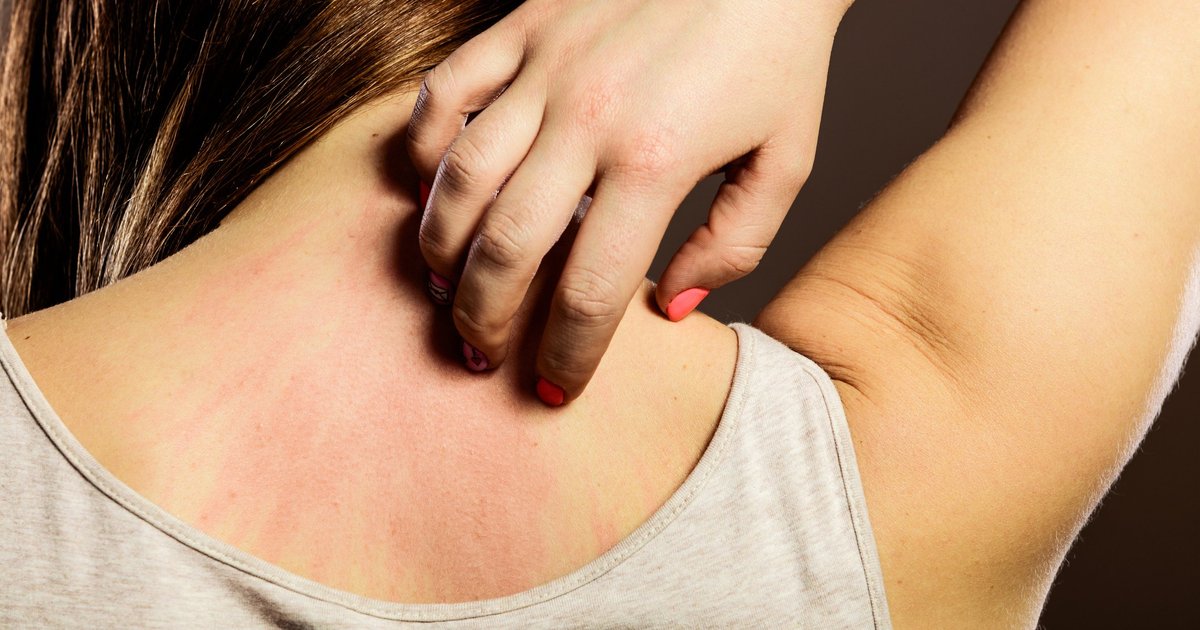
If kidney failure occurs and is non-reversible, kidney transplantation is an alternative option to dialysis. If the patient is an appropriate candidate, the healthcare professional and nephrologist will contact an organ transplant center to arrange an evaluation to see whether the patient is suitable for this treatment. Sometimes, family members have compatible tissue types and, if they are willing, may donate a kidney.
While kidney transplants have become routine, the patient will need to take anti-rejection medications that reduce the ability of the immune system to fight infection. The body can try to reject the kidney or the transplanted kidney may fail to work. As with any operation, there is a risk of bleeding and infection.
Kidney transplants may provide a better quality of life than dialysis. After one year, 95% of transplanted kidneys are still functioning and after five years, the number is 80%.
It seems that the longer a patient is on dialysis, the shorter the life of the transplanted kidney.
If the transplanted kidney fails, the alternative is another kidney transplant or a return to dialysis.
Homeopathic treatment for Kidney failure
Homeopathy is a holistic form of treatment that claims to improve kidney functioning, reduce dialysis, and relieve symptoms of kidney disorders.
Phosphorus
Inflamed and degenerative mucous membranes. Serous membranes irritation and inflammation. Paralysis due to spinal cord and/or nervous system’s inflammation. Osteopenia. High cholesterol, varicose. Hemorrhages from even small wounds and scratches, and hematogenous jaundice. destructive metabolism. Liver cirrhosis. Sub-acute hepatitis. Hematuria, especially in acute Bright’s disease. Urine turbid, brown, with red sediment.
Violent heart palpitation with anxiety, while lying on left side. Pulse rapid, small, and soft. Heart dilated, especially right. Feeling of warmth in heart.
Calcarea Carbonicum
Increased local and general perspiration. Glands swelling. Kidneys swelling. High cholesterol, blood clots. Dark, brown, sour, fetid, abundant, with white sediment, bloody. Irritable bladder. Enuresis. Palpitation at night and after eating. Palpitation with feeling of coldness, with restless oppression of chest; after suppressed eruption.
Serum AnguIllae or Eel Serum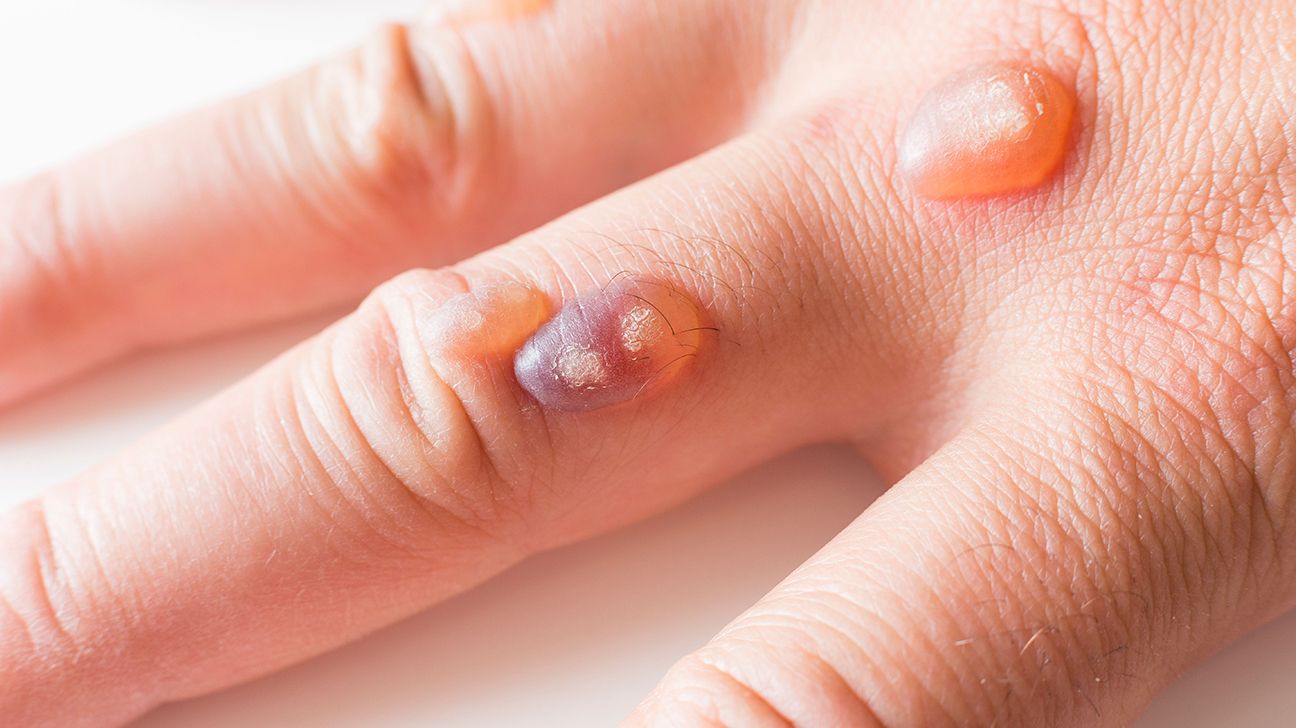
Destroyed globules. Hemoglobinuria, the prolonged anuria (24 and 26 hours), together with the results of the autopsy, plainly demonstrate its elective action on the kidneys. Secondarily, the liver and the heart are affected, and the alterations observed are those usually present in infectious diseases.
From all these facts it is easy to infer, a priori, the therapeutic indications of the serum of the eel. Whenever the kidney becomes acutely affected, either from cold or infection or intoxication, and the attack is characterized by oliguria, anuria and albuminuria, Diuresis, and in rapidly arresting albuminuria. In heart-disease, the kidney should suddenly become affected, and its function inhibited. Cardiac irregularities and a marked state of asystole.
Arterial hypertension oliguria and oedema; the serum of the eel seems better adapted to cases of hypertension and oliguria, without oedema. We should bear in mind that the elective action of the eel’s serum is on the kidney, and I believe we can well assert that if digitalis is a cardiac, the eel’s serum is a renal remedy. The serum of the eel has very good results in efficacious in cardiac uremia.
Subacute nephritis. Heart diseases, in cases of failure of compensation and impending asystole. In the presence of acute nephritis with threatening uremia. Very efficacious in functional heart diseases. Mitral insufficiency, asystole with or without oedema, dyspnea and difficult urinary secretion.
Lithium Carbonicum
Chronic rheumatism connected with heart lesions and asthenopia offer a field for this remedy. Rheumatic nodes. Uric acid diathesis Whole body is sore. Gout and tophi. Urine tenesmus. Turbid urine, with mucus and red deposit. Pain in region of right kidney. Free and colorless. While urinating, pressure in heart. Cystitis, subacute and chronic.
Rheumatic soreness in cardiac region. Sudden shock in heart. Throbbing, dull stitch in cardiac region. Pains in heart before menses, and associated with pains in bladder, and before urinating; better, after. Trembling and fluttering in heart, extending to back.
Urinary soreness of bladder; pain in right kidney and ureter. Turbid urine with mucus, scanty and dark, acrid; sandy deposit.
Argentum Nitricum
Urine passes unconsciously, day and night. Urethra inflamed, with pain, burning, itching, pain as from a splinter. Urine scanty and dark. Emission of a few drops after having finished. Divided stream. Early stage of gonorrhea; profuse discharge and terrible cutting pains; bloody urine. Palpitation, pulse irregular and intermittent. Painful spots in chest. Angina pectoris, nightly aggravation. Brown, tense, and hard. Drawing in skin – spider-web, or dried albuminous substance, withered and dried up. Irregular blotches.
Aconite Nepalis
Suppression of urine, with pressure in the bladder and pains in the loins. A frequent desire to urinate, accompanied by anxiety and pain. Flow of urine, with sweat, diarrhea, and colic -Involuntary emission of urine, from relaxation of the neck of the bladder. Enuresis, with thirst. Urine scanty, burning, deep red, and with a sediment of a brick color; suppression of. Bloody sediment in the urine. Scanty, red, hot urine, without sediment. Heat and tenesmus in the neck of the bladder. Stiff neck. Testicles affections. Tetany. Thirst. Throat affections. Tongue affections. Traumatic fever. Urethral spasmodic stricture. Urethral fever. Urine suppression. Uterus prolapsus. Vaccination effects. Vertigo. Yellow fever.
Ammonium Carbonicum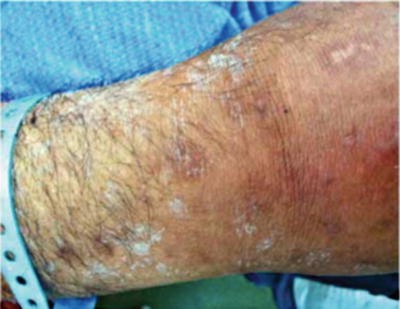
Always tired and weary, take cold easily. Malignant scarlatina, with somnolence, swollen glands, dark red sore throat, faintly developed eruption. Uremia. Heaviness in all organs. Uncleanness in bodily habits. Swelling of parts, glands, etc. Acid secretions. Prostration from trifles. Frequent desire to urinate, involuntary at night. Tenesmus of bladder. Urine white, sandy, bloody, copious, turbid and fetid. Audible palpitation with fear, cold sweat, lachrymation, inability to speak, loud breathing and trembling hands. Heart weak, wakes with difficult breathing and palpitation.
Violent itching and burning blisters. Scarlet rash. Miliary rash. Malignant scarlatina. Faintly developed eruptions from defective vitality. Erysipelas in the aged, with brain symptoms. Eczema. Cold sweat, lachrymation, inability to speak, loud breathing and trembling hands. Heart weak, wakes with difficult breathing and palpitation.
Apis Mellifica
Acts on cellular tissues, edema of skin and mucous membranes. Erysipelatous inflammations, dropsical effusions and anasarca, acute, inflammation of kidneys. Serous inflammation with effusion, membranes of brain, heart, pleuritic effusion, etc. Extreme sensitiveness to touch and general soreness. Constricted sensations. Sensation of stiffness and as of something torn off in the interior of the body. Much prostration. Micturition and soreness when urinating. Suppressed, loaded with casts; frequent and involuntary; stinging pain and strangury; scanty, high colored. Incontinence. Last drops burn and smart.
Rheumatic pain. Tired, bruised feeling. Numbness of hands and tips of fingers. Hives with intolerable itching. Edematous swellings.
Swellings after bites; sore, sensitive. Stinging. Erysipelas, with sensitiveness and swelling, rosy hue. Carbuncles, with burning, stinging pain. Sudden puffing up of whole body.
Apocynum Cannabinum
Increases secretions of mucous and serous membranes, it acts on cellular tissue: oedema and dropsy and on skin causing diaphoresis. Acute hydrocephalus. A diminished frequency of the pulse is a prime indication. This is one of our most efficient remedies, in dropsies, ascites, anasarca and hydrothorax, and urinary troubles, especially suppression and strangury.
In the digestive complaints of Bright’s disease, with the nausea, vomiting, drowsiness, difficult breathing. Dropsy with great thirst and gastric irritability. Arrhythmia. Mitral and tricuspid regurgitation. Acute alcoholism. Relaxation of sphincters.
Bladder distended. Turbid, hot urine, with thick mucus and burning in urethra, after urinating. Little expulsive power. Dribbling. Strangury. Renal Dropsy. Tricuspid regurgitation; rapid and feeble, irregular cardiac action, low arterial tension, pulsating jugulars, general cyanosis and general dropsy.
Arsenic Album
Trouble urinating. Uremia, nephritis, urgent need to urinate or urinating without knowing. Great exhaustion after the slightest exertion. Irritable weakness. Burning pains. Unquenchable thirst. Urine scanty, burning, involuntary. Bladder as if paralyzed. Albuminous. Epithelial cells; cylindrical clots of fibrin and globules of pus and blood. After urinating, feeling of weakness in abdomen. Bright’s disease. Diabetes.
Heart – Palpitation, pain, dyspnea, faintness. Irritable heart in smokers and tobacco-chewers. Pulse more rapid in morning. Dilatation. Cyanosis. Fatty degeneration. Angina pectoris, with pain in neck and occiput. Weakness in small of back. Drawing in of shoulders. Pain and burning in back.
Extremities – Trembling, twitching, spasms, weakness, heaviness, uneasiness. Cramps in calves. Swelling of feet. Sciatica. Burning pains. Peripheral neuritis. Diabetic gangrene. Ulcers on heel. Paralysis of lower limbs with atrophy.
Itching, burning, swellings; oedema, eruption, papular, dry, rough, scaly; worse cold and scratching. Malignant pustules. Ulcers with offensive discharge. Anthrax. Poisoned wounds. Urticaria, with burning and restlessness. Psoriasis. Scirrhous. Icy coldness of body. Epithelioma of the skin. Gangrenous inflammations.
Aurum Metallicum
In urine constitutes of mucous-like residue. Debility, exhaustion, and restlessness, with nightly aggravation, are most important. Hopeless, despondent, and great desire to commit suicide (Depression). Every opportunity is sought for self-destruction. Exostosis, caries, nightly bone-pains, especially cranial, nasal, and palatine. Glands swelling. Palpitation and congestions. Ascites often in conjunction with heart affections. Secondary syphilis and effects of mercury.
Aurum metallicum is an anti-venereal and anti-scrofulous medicine. When syphilis is implanted on the scrofulous constitution. Ennui. Ozaena; sexual hyperesthesia. Arteriosclerosis, high blood pressure; nightly paroxysms of pain behind sternum. Sclerosis of liver, arterial system, brain. Pining boys; low spirited, lifeless, weak memory.
Urine turbid, like buttermilk, with thick sediment. Painful retention. Sensation as if the heart stopped beating for two or three seconds, immediately followed by a tumultuous rebound, with sinking at the epigastrium. Palpitation. Pulse rapid, feeble, irregular. Hypertrophy. High Blood Pressure-Valvular lesions of arterio-sclerotic nature. Dyspnea at night. Frequent, deep breathing; stitches in sternum.
Destruction of bones. Pain in bones of head, lumps under scalp, exostosis with nightly pains in bones. Caries of nasal, palatine and mastoid bones. Soreness of affected bones. All the blood seems to rush from head to lower limbs. Dropsy of lower limbs. Orgasm, as if blood were boiling in all veins. Paralytic, tearing pains in joints. Knees weak.
Belladonna
Belladonna has a marked action on the vascular system. Urine retention. Acute urinary infections. Sensation of motion/crawling in bladder. Urine scanty, with tenesmus; dark and turbid, loaded with phosphates. Vesical region sensitive. Incontinence, continuous dropping. Frequent and profuse. Hematuria without any pathological condition. Prostatic hypertrophy.
Heart – violent palpitation, reverberating in head, with labored breathing. Palpitation from least exertion. Throbbing all through body. Dichroism. Heart seemed too large. Rapid but weakened pulse.
Shooting pains along limbs. Joints swollen, red, shining, with red streaks radiating. Tottering gait. Shifting rheumatic pains. Phlegmasia alba dolens. Jerking limbs. Spasms. Involuntary limping. Cold extremities.
Stiff neck. Swelling of glands of neck. Pain in nape. Pressure on dorsal region, painful. Lumbago, with pain in hips and thighs.
Skin dry and hot; swollen, sensitive; burns scarlet, smooth. Eruption like scarlatina, suddenly spreading. Erythema; pustules on face. Glands swollen, tender, red. Boils. Acne rosacea. Suppurative wounds. Alternate redness and paleness of the skin. Indurations after inflammations. Erysipelas.
Fever, high feverish state with comparative absence of toxemia. Burning, pungent, steaming, heat. Feet icy cold. Superficial blood-vessels, distended. Perspiration dries only on head. No thirst with fever.
Benzoicum Acidum
The most marked characteristic pertains to the odor and color of the urine. It has a marked action on metabolism. It produces and cures symptoms of a uric acid diathesis, with urine highly colored and very offensive, and gouty symptoms. Renal insufficiency. Pains suddenly change their locality. Anti-sycotic. Gouty and asthmatic. Urine – changeable color; brown, acid. Enuresis; dribbling, offensive urine of old men. Excess of uric acid. Vesical catarrh from suppressed gonorrhea. Cystitis.
Joints crack on motion. Tearing with stitches. Pain in tendo Achillis. Rheumatic gout; nodes very painful. Gouty deposits. Ganglion; swelling of the wrist. Pain and swelling in knees. Bunion of knee, with severe pain.
Fever. Cold hands, feet, back, knees. Chilliness; cold sweat. Internal heat on awakening. Red spots on skin. Itching in spots.
Berberis Vulgaris
Hepatic, and rheumatic affections, particularly with urinary, hemorrhoidal and menstrual complaints.
Old gouty constitutions. Pain in region of kidneys is most marked, hence its use in renal and vesical troubles, gallstones, and vesical catarrh. It causes inflammation of kidneys with hematuria. Pains may be felt all over body, emanating from small of back. It promotes the flow of bile. Arthritic affections with urinary disturbances. Wandering, radiating pains. Acts well in fleshy persons, good livers, but with little endurance. Spinal irritation. All Berberis pains radiate, are not worse by pressure, but worse in various attitudes, especially standing and active exercise.
Micturition, burning pains. Sensation as if some urine remained after urinating. Urine with thick mucus and bright-red, mealy sediment. Bubbling, sore sensation in kidneys. Pain in bladder region. Pain in the thighs and loins on urinating. Frequent urination: urethra burns when not urinating.
Rheumatic paralytic pain in shoulders, arms, hands and fingers, legs and feet. Neuralgia under fingernails, with swelling of finger-joints. Sensation of cold on outside of thighs. Heels pain. Stitching between metatarsal bones. Pain in heels. Intense weariness and lameness of legs after walking a short distance.
Flat warts. Itching, burning and smarting; worse, scratching; better, cold applications. Small pustules over whole body. Eczema of anus and hands. Circumscribed pigmentation following eczematous inflammation.
Cannabis indica
Urine loaded with slimy mucus. Must strain; dribbling; has to wait some time before the urine flows. Stitches and burning in urethra. Dull pain in region of right kidney.
Palpitation awakes him. Piercing pain, with great oppression. Pulse very slow.
Pain across shoulders and spine; must stoop; cannot walk erect. Thrilling through arms and hands, and from knees down. Entire paralysis of the lower extremities. Pain in soles and calves; sharp pains in knees and ankles; very exhausted after a short walk.
Cantharis
This powerful drug produces a furious disturbance in the urinary and sexual organs, perverting their function, and setting up violent inflammations, and causing a frenzied delirium, simulating hydrophobia symptoms. Puerperal convulsions. Produces most violent inflammation of the whole gastro-intestinal canal, especially lower bowel. Over sensitiveness of all parts. Irritation. Raw, burning pains. Hemorrhages. Intolerable, constant urging to urinate. Gastric, hepatic and abdominal complaints. Gastric derangements of pregnancy. Dysuria. Increases secretion of mucous membranes, tenacious mucus. The inflammations cantharis produces (bladder, kidneys, ovaries, meninges, pleuritic and pericardial membranes) are usually associated with bladder irritation.
Intolerable urging and tenesmus. Nephritis with bloody urine. Violent paroxysms of cutting and burning in whole renal region, with painful urging to urinate; bloody urine, by drops. Intolerable tenesmus; cutting before, during, and after urine. Urine scalds him, and is passed drop by drop. Constant desire to urinate. Membranous scales looking like bran in water. Urine jelly-like, shreddy.
Chelidonium Majus
Polyuria, foaming, yellow urine, like beer dark, turbid. Pain in arms, shoulders, hands, tips of fingers. Icy coldness of tips of fingers; wrists sore, tearing in metacarpal bones. Whole flesh sore to touch. Rheumatic pain in hips and thighs; intolerable pains in heels. Feels paralyzed. Paresis of the lower limbs with rigidity of muscles.
Dry heat of skin; itches, yellow. Painful red pimples and pustules. Old, spreading, offensive ulcers. Wilted skin. Sallow, cold, clammy.
Crotalus horridus
Urinary Organs. Hematuria. Suppression or painful retention of urine. Urine: scanty, dark and red with blood; jelly-like; greenish yellow from much bile; copious and light-colored. Much pain in heart. Palpitation with sore pain in heart; feeling as if heart tumbled over. Pulse hardly perceptible. Phlebitis; varicosis; varicocele. Limbs. Painful paralytic sensation. Rheumatic and neuralgic pains. Bruised pain in joints and bones. Heaviness in limbs. Numb pain as after cramp in anterior of fingers and in toes. Contraction of flexors. Skin. Itching stinging all over; urticaria. Skin dry, stiff like thin parchment; usually cold. Yellow color of whole body (hematic rather than hepatic jaundice). Petechiae. Vesicles; herpes; pimples; boils; carbuncles; burns; stings; pemphigus; ulcers; gangrene; felons; anthrax. Old cicatrices break out again. Peliosis rheumatica. Dropsies.
Cuprum Arsenicum
Kidney failure, excruciating urine, and stained urine. Pain in sacral region, with frequent urging to urinate. Dark red urine; burning pain during and after urination. Strong smelling urine; odor of garlic. Heart’s action weak and hurried, pulse small, compressible, weak, and frequent, though quite regular. Sudden debility, long involuntary inspiration. Empty feeling in stomach, with vertigo and confusion of ideas, and headache between temples. Palpitation of heart, with trembling of limbs. Severer cardiac palpitation. Cardiac chorea (bradycardia): at one time heart beats very irregular and feeble, at another time violent and irregular; attacks appear in paroxysms, action being normal in intervals.
Tremulousness of whole body, very noticeable on attempting to walk. Quivering, impossible to control. Severe prostration.
Body covered with cold moisture, skin dirty pale. Icy coldness of whole body, with cramps and obstinate hiccough. Intermittent, cold clammy sweat.
Cuprum Metallicum
Urgent want to make water, with scant emission. Frequent emission of fetid (dark-red, turbid, with yellowish sediment), viscid urine. Burning shootings in the urethra, during and subsequent to the emission of urine. Bed wetting (nocturia). when a person goes through bed-wetting, extremely watery urine, and feels shooting pain in the urethra.
Spasm of heart. Angina pectoris. Palpitation of the heart. Pulse very changeable; imperceptible; small; soft. Pressive tearing or starting in the limbs. Pain in the joints and in the limbs. Aching in the bones. Rheumatic pains. Shaking pains, which traverse the whole body. Dry eruptions, itch, tetters, with yellow scales. Miliary eruptions. Old ulcers; caries.
Digitalis Purpurea
Pulse – weak, irregular, intermittent, abnormally slow, and dropsy of external and internal parts. Weakness and dilatation of the myocardium. Its greatest indication is in failure of compensation and especially when auricular fibrillation has set in. Slow pulse in recumbent posture, but irregular and dicrotic on sitting up. Auricular flutter and fibrillation especially when subsequent to rheumatic fever. Heart block, very slow pulse. Severe weakness and sinking of strength, faintness, coldness of skin, and irregular respiration; cardiac irritability and ocular troubles after tobacco; jaundice from induration and hypertrophy of the liver. Jaundice with heart disease. Faint.
Cyanosis (bluish appearance). Cardiac muscular failure when asystole is present. Prostration from slight exertion. Collapse. Frequent stitches in heart. Irregular heart especially of mitral disease. Very slow pulse. Intermits; weak. Inequality of pulse. Pericarditis, copious serous exudation. Dilated heart, tired, irregular, with slow and feeble pulse. Hypertrophy with dilatation. Cardiac failure following fevers. Cardiac dropsy.
Continued urging to urinate, in drops, dark, hot, burning, with sharp cutting or throbbing pain at neck of bladder. Suppressed. Ammoniacal, and turbid. Urethritis, phimosis, strangury. Full feeling after urination. Constriction and burning. Brick-dust sediment.
Swelling of the feet. Fingers go to sleep easily. Coldness of hands and feet. Rheumatic pain in joints. Shining, white swelling of joints. Muscular debility. Nocturnal swelling of fingers. Continuous sleepiness.
Fever – sudden flashes of heat, followed by great nervous weakness. Erythema, deep red, worse on back, like measles. Blue distended veins, ears, lips and tongue. Dropsical. Itching and jaundiced.
Helonias Dioica
Diabetes mellitus, and insipidus. Constant aching and tenderness over kidneys. kidney irritation, sickliness, cramps and bluntness. Albuminuria. phosphatic; profuse and clear, urine – saccharine.
Kali Carbonicum
Urinary Organs. Frequent want to urinate, scanty emission of fiery urine. The urine discharged slowly. After micturition prostatitis. Urine pale greenish; turbid. Frequent emission of urine. Incisive pains in bladder. Burning sensation in urethra.
Plumbum Metallicum
The blood, alimentary and nervous systems are the special seats of action of Plumbum. Hemostasis is interfered with, rapid reduction in number of red corpuscles, hence pallor, icterus, anemia. Constrictive sensation in internal organs. Delirium, coma and convulsions. Hypertension and arteriosclerosis. Progressive muscular atrophy. Infantile paralysis. Locomotor ataxia. Excessive and rapid emaciation. Bulbar paralysis. Important in peripheral affections.
The points of attack for Plumbum are the neurexins and the anterior horns. Multiple sclerosis, posterior spinal sclerosis. Contractions and boring pain. All the symptoms of acute. Nephritis with amaurosis and cerebral symptoms. Gout. Urinary – frequent, ineffectual tenesmus. Albuminous; low specific gravity. Chronic interstitial nephritis, with great pain in abdomen. Urine scanty. Tenesmus of bladder. Emission drop by drop. Frequent, ineffectual tenesmus. Albuminous; low specific gravity. Chronic interstitial nephritis, with great pain in abdomen. Urine scanty. Tenesmus of bladder. Emission drop by drop.
Cardiac weakness. Pulse soft and small, dichroitic. Wiry pulse, camp-like constriction of peripheral arteries. Spinal cord sclerosed. Lightning-like pains; temporarily better by pressure. Paralysis of lower extremities. Yellow, dark-brown liver spots. Jaundice. Dry. Dilated veins of forearms and legs.
Paralysis of single muscles, limited movements. Paralysis from overexertion of the extensor muscles in piano players. Pains in muscles of thighs; come in paroxysms. Wrist-drop. Cramps in calves. Stinging and tearing in limbs, also twitching and tingling, numbness, pain or tremor. Paralysis. Feet swollen. Pain in atrophied limbs alternates with colic. Loss of patellar reflex. Hands and feet cold. Pain in knee, sensitive to touch.
Mercurious Coresive
Destroyed secreting portions of kidneys – glomerulonephritis. Intense burning in urethra. Urine hot, burning, scanty or suppressed; bloody, greenish discharge. Albuminous. Tenesmus of bladder. Stabbing pain extending up urethra into bladder, perspiration after urinating. Destroyed kidney function – Glomerular filtration. Albuminuria in early pregnancy.
Terebinthum
Has a selective affinity for bleeding mucous surfaces. Tympanites and urinary symptoms very marked. Inflammation of kidneys, with haemorrhages-dark, passive, fetid. Bright’s disease preceded by dropsy. Drowsiness and strangury. Coma. Urinary strangury, with bloody urine. Scanty, suppressed, odor of violets. Urethritis, with painful erections. Inflamed kidneys following any acute disease. Constant tenesmus. Pulse rapid, small, thready, intermittent.
Acne. Erythema; itching pustular, vesicular eruption; urticaria. Purpura, ecchymosis, dropsies. Scarlatina. Chilblains; with excessive itching and pulsating pains. Aching soreness of the muscles.
Fever with violent thirst, dry tongue, profuse cold, clammy sweat. Typhoid with tympanites, hemorrhages, stupor, delirium. Prostration.
Urea
Constant urging to urinate, beginning at root of penis. Constant urging, with much sediment in urine. From bladder to groins a fatiguing, tearing pain < standing. Profuse diuresis with rapid diminution of dropsy. Albuminuria; bloody urine; general dropsy; intermittent heart. Delirium, nosebleed, urine brown, very albuminous; oedema of pudenda; ascites; pulse small, slow; attacks of suffocation, polyuria; swelling decreased; albumen disappeared). Diabetes; uraemia. Urine thin and of low specific gravity. A hydrogogue diuretic in the treatment of dropsies.
P. S: This article is only for doctors having good knowledge about Homeopathy and allopathy, for learning purpose(s).
For proper consultation and treatment, please visit our clinic.
None of above-mentioned medicine(s) is/are the full/complete treatment, but just hints for treatment; every patient has his/her own constitutional medicine.
To order medicine by courier, please send your details at WhatsApp– +923119884588
 Dr. Sayyad Qaisar Ahmed (MD {Ukraine}, DHMS), Abdominal Surgeries, Oncological surgeries, Gastroenterologist, Specialist Homeopathic Medicines.
Dr. Sayyad Qaisar Ahmed (MD {Ukraine}, DHMS), Abdominal Surgeries, Oncological surgeries, Gastroenterologist, Specialist Homeopathic Medicines.
Senior research officer at Dnepropetrovsk state medical academy Ukraine.
Location: Al-Haytham clinic, Umer Farooq Chowk Risalpur Sadder (0923631023, 03119884588), K.P.K, Pakistan.
Find more about Dr Sayed Qaisar Ahmed at:
https://www.youtube.com/Dr Qaisar Ahmed
https://www.facebook.com/ahmed drqaisar



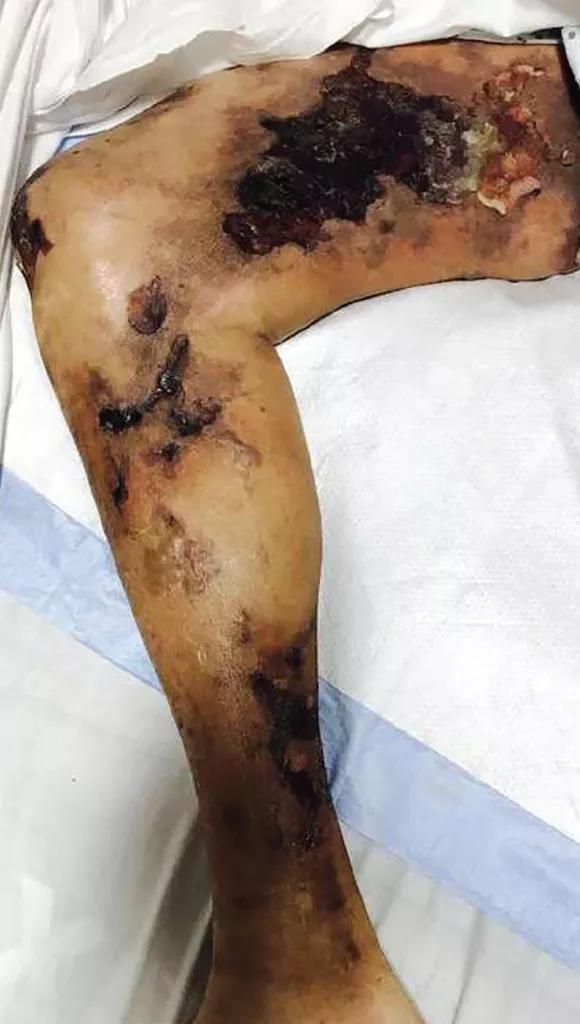

I think that is one of the so much important info for me. And i am happy studying your article. However want to remark on few basic things, The web site taste is perfect, the articles is actually excellent : D. Good job, cheers